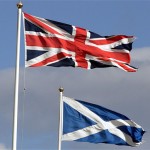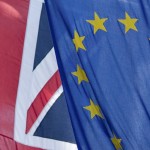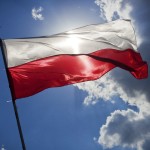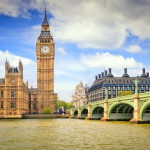It is only one year ago I was confidently predicting that Scotland would vote by 2-to-1 to retain the 1707 union with England. As someone who has spent the vast majority of my life involved in politics, this was not simply a glib statement.
However the prediction was made to a pro-independence veteran. The veteran Scots nationalist – having known the Scottish National Party leader, Alex Salmond, for decades – confidently informed me that he had “never known Alex to lose a battle”.
I’d didn’t believe him.
But with September 18, the day of voting, approaching fast, it now looks as if he might just be right – and I might just be wrong!
It now looks as if the once unthinkable may actually happen – Scotland the country is going to become Scotland the state.
The Spanish have a saying that God does not write in straight lines. And this certainly seems to be the case with Scotland’s independence referendum.
For instance, early on in the campaign those who opposed Scotland’s independence threatened that a ‘Yes’ vote would mean Scotland would be not be a member of the European Union. But that particular threat disappeared the moment the anti-EU United Kingdom Independence Party topped England’s 2014 European Parliament elections. Now it seems to be that if a voter wishes Scotland to stay in the EU then, due to the fear that the United Kingdom will be leaving the EU at some point in the future, they should vote for an independent Scotland.
Then you have the leader of the UK Labour Party, Ed Milliband, trying to win over Scotland, and saying vote for him and he will deliver what Scottish Labour voters want. With the electorate in Scotland being largely more left-of-centre than England, the Labour politics north of the border tend to be reflected in what is euphemistically known as “old Labour” (aka: more traditional socialism.) But there is a reason that Tony Blair in 1994 gained power in the Labour Party and swung its centre from left to right – because across the island of Britain the “old Labour” politics were unelectable. But this is not the case in Scotland where “old Labour” still prevails.
But what a double irony that, should Scotland vote ‘No’ – a campaign which the official Labour Party have thrown its weight behind – then the Scottish Labour Party will struggle to gain power in the Scottish Parliament. With Scottish Labour ultimately controlled by the UK party, and with the perceived need of the Scottish electorate to have a home Government playing hard-ball when dealing with London, it seems a ‘No’ vote will surely ensure a foreseeable future of Scottish Government’s made up by their ultimate foe – the Scottish National Party.
But if you are confused then try and understand that if one wishes to destroy the SNP then vote for independence!!! Just like the demise of Northern Ireland’s anti-Militant Irish nationalist SDLP, which fell away once non-violence was achieved, it may also be a case of “job done” for the SNP in the event of an independent Scotland.
And then there is the total and utter lack of a strong centre-right party in Scotland. This is mainly due to the fact that its Conservative and Unionist Party, who are the main party in power in the UK Government Coalition with the Liberal Democrats, are a contaminated brand north of the border. This is partly to do with the perception that it is a party that has more in common with the south of England than it has with Scotland. In an independent Scotland it can be assumed there would be a natural re-alignment of the spectrum, possibly leading to a situation of the fiercely anti-independence Conservative Party resurrecting into a major Scottish-identified political power player!
In a further quirky twist, most people would assume the pro-independence Scottish nationalist side to be….erm….well…nationalist. But so far the Yes side, which is dominated by the Scottish National Party, have talked economics, democratic deficits, equality and emphasised that the vote is about Scotland not the Scottish. In fact it took Johann Lamont, the leader of the anti-independence Scottish Labour Party, to speak of “patriotic choice” when it came to voting in the referendum. Such calls to patriotism have not been heard from the leaders of the pro-independence side.
Then there is the strange realisation that nobody, apart from groups considered politically contaminated, is arguing from a British nationalist perspective. Britishness – as far as this referendum is concerned – is dead. Those opposing independence have based their argument on what is best for Scotland. This is not the Madrid-Catalonia dilemma.
Then another irony enters the debate, that being the sense of Britishness possibly growing in an independent Scotland due to the populace feeling secure enough in their identity. Up until now it is fair to say that, for many Scottish people, Britishness and Englishness seem to merge. This may very well change if a Yes vote prevails.
And with the Yes side edging ahead for the first time in the run-up to the last week of the referendum, it really does seem as if every rule is being broken. Usually it is the non-change position which gathers momentum, not those proposing radical change.
With the three leaders of the UK’s three main political parties, and other UK heavy-weights such as former Prime Minister Gordon Brown, in a seeming panic to get up and around Scotland, it really does seem as if it is only dawning in the last few days that Scotland may say ‘Yes’ to independence.
However if the UK leaders manage to stop a ‘Yes’ vote by delivering much greater autonomy powers to Scotland, as a gift for rejecting independence, then it must be asked; will the seeds of the UK’s demise have been entrenched even more by encouraging the resentment of the English populace towards a perceived privileged Scotland?
But right at heart of the independence referendum is the issue of sovereignty. Even if the three leaders of the main London-based parties were able to give Scotland extra devolved powers to the equivalence of an independent Scotland – bar Foreign Policy and the Armed Forces – the fundamental problem still exists, which is the idea that Scotland is being ‘given’ powers. The ‘Yes’ side do not want to be ‘given’ extra powers – the ‘Yes’ side want to assume all powers as a sovereign Scottish state.
One year on and I’ve learnt not to confidently predict this independence vote. But what I do confidently predict is that if there is an anti-independence ‘No’ vote then expect this issue to arise again within the next 25 years. I also confidently predict that if there is a pro-independence ‘Yes’ vote then do not expect any campaign in the future for Scotland to give up its independent sovereignty by re-joining the United Kingdom. After all, even during the worst of days of the recent Irish economic recession, when the Celtic Tiger died the death, never once did the citizens of Ireland publicly debate whether or not they should re-join the UK.
Solo un anno fa ero persuaso che la Scozia avrebbe votato per mantenere l’unione del 1707 con l’Inghilterra. Avendo passato la maggior parte della mia vita impegnato in politica, non era un convincimento campato per aria. Tuttavia avevo condiviso questa previsione con un veterano pro-indipendenza, nazionalista scozzese, che conosceva da decenni Alex Salmond, leader del Partito nazionale scozzese, e che m’informò in modo confidenziale che “Alex non aveva mai perso una battaglia”. Non gli credetti. Ma mentre il 18 settembre, il giorno del voto, si avvicina rapidamente, sembra che possa aver avuto ragione. Io potrei essermi sbagliato! Sembra che un evento un tempo impensabile possa effettivamente accadere. Il paese Scozia sta per diventare lo stato Scozia. Gli spagnoli hanno un detto secondo cui Dio non scrive su una linea retta. E questo certamente sembra essere il caso del referendum per l’indipendenza della Scozia.
Ad esempio, nella fase iniziale della campagna, coloro che si opponevano all’indipendenza scozzese minacciavano che un ‘sì’ avrebbe significato per la Scozia non essere più membro dell’Unione europea. Ma questa minaccia è scomparsa nel momento in cui il partito indipendentista britannico anti-UE ha vinto le elezioni del Parlamento europeo del 2014. Ora sembra che se un elettore vuole che la Scozia rimanga nell’UE, a causa del timore che il Regno Unito possa lasciare l’UE in futuro, debba votare per una Scozia indipendente.
Poi c’è il leader del partito laburista britannico, Ed Milliband, che cerca di conquistare la Scozia e dice di votare per lui perché farà ciò che gli elettori laburisti scozzesi vogliono. Essendo l’elettorato in Scozia in gran parte più di centro-sinistra che in Inghilterra, la politica dei laburisti al Nord del confine tende a riflettersi nel cosiddetto “laburismo di vecchio stampo” (ad esempio, socialismo più tradizionale). Ma se Tony Blair nel 1994 ottenne il potere nel partito laburista e girò il suo centro da sinistra a destra è perché in tutta la Gran Bretagna i politici del “il vecchio laburismo” erano ineleggibili. Ma questo non è il caso della Scozia, dove il “vecchio laburismo” prevale ancora.
Doppiamente ironico è il fatto che se la Scozia dovesse votare “no” – una campagna su cui il partito laburista ha investito tutto se stesso – il partito laburista scozzese dovrebbe poi lottare per conquistare potere nel Parlamento scozzese. Con un partito laburista scozzese controllato dal partito del Regno Unito, e con il forte bisogno dell’elettorato scozzese di avere un Governo che gioca duro con Londra, sembra che un ‘No’ implicherebbe un prevedibile futuro con un Governo scozzese fatto dal nemico più acerrimo, il Partito nazionale scozzese (SNP).
Ma se si è confusi, allora bisogna cercare di capire che se si vuole distruggere il SNP, bisogna votare per l’indipendenza! Proprio come nell’Irlanda del Nord, dove il partito nazionalista SDLP si è sciolto quando si è raggiunta la non-violenza, così può essere che “il lavoro sia finito” per l’SNP nel caso di una Scozia indipendente.
E poi c’è l’assenza totale e assoluta di un forte partito di centro-destra in Scozia. Ciò è dovuto principalmente al fatto che il partito conservatore e unionista, che insieme ai Liberal Democratici è il principale partito al potere nel governo di coalizione della Gran Bretagna, è un simbolo contaminato a Nord del confine. Questo ha in parte a che fare con la percezione che si tratti di un partito che ha più in comune con il Sud dell’Inghilterra che con la Scozia. In una Scozia indipendente si può presumere che ci sarebbe un naturale riallineamento dello spettro, che potrebbe portare alla situazione per cui un partito conservatore ferocemente anti-indipendenza resusciterebbe in un importante giocatore politico “scozzesemente” connotato!
In un’ulteriore torsione eccentrica, la maggior parte delle persone darebbe per scontato che la parte nazionalista scozzese pro-indipendenza sia … beh … nazionalista. Ma finora la parte “sì” che è dominata dal Partito nazionale scozzese ha parlato di economia, deficit di democrazia, uguaglianza, sottolineando che il voto riguarda la Scozia, non gli scozzesi. In realtà c’è voluto Johann Lamont, leader del partito laburista scozzese anti-indipendenza, a parlare di “scelta patriottica” quando si è trattato di votare per il referendum. Simili appelli al patriottismo non si sono sentiti dai leader pro-indipendenza.
Poi c’è la strana consapevolezza che nessuno, a parte i gruppi considerati politicamente contaminati, sta sostenendo una prospettiva nazionalista britannica. La britannicità – per quanto riguarda il referendum – è morta. Chi si oppone all’indipendenza ha basato la propria tesi su ciò che è meglio per la Scozia. Questo non è il dilemma Madrid-Catalogna.
E un’altra ironia è in gioco: il senso di britannicità che potrebbe crescere in una Scozia indipendente perché la popolazione si possa sentire abbastanza sicura nella propria identità. Fino ad ora, per molti scozzesi, britannicità e inglesità sembrano fondersi. Questo potrebbe benissimo cambiare se prevalesse il ‘sì’.
E con i ‘sì’ che per la prima volta nell’ultima settimana del periodo pre-referendario sono aumentati, sembra davvero che ogni regola sia infranta. Di solito è la posizione di non-cambiamento che trova slancio, non chi propone un cambiamento radicale.
Con i leader dei tre principali partiti politici del Regno Unito, e altri pesi massimi del Regno Unito come l’ex primo ministro Gordon Brown, che in preda al panico apparente si sono alzati e hanno girato per la Scozia, sembra che solo in questi ultimi giorni si faccia strada l’ipotesi che la Scozia dica ‘sì’ all’indipendenza.
Tuttavia, se i leader britannici riescono a fermare il ‘sì’, offrendo maggiore autonomia alla Scozia, come un dono per aver respinto l’indipendenza, allora ci si deve chiedere: i germi della fine del Regno Unito si irrobustiranno ancora più incoraggiando il risentimento della popolazione inglese verso una Scozia percepita come privilegiata?
Ma proprio al cuore del referendum per l’indipendenza è la questione della sovranità. Anche se i tre leader dei principali partiti londinesi sono stati in grado di dare alla Scozia poteri in più equivalenti a una Scozia indipendente – esclusa la politica estera e le forze armate – il problema fondamentale che ancora esiste è l’idea che alla Scozia siano stati “dati” più poteri. I sostenitori del ‘sì’ non vogliono che gli vengano ‘dati’ poteri in più: vogliono assumere tutti i poteri come stato sovrano scozzese.
In un anno ho imparato a non fare previsioni certe su questo voto per l’indipendenza. Ma quello che prevedo è che se ci sarà un voto anti-indipendenza, questo dibattito emergerà di nuovo entro i prossimi 25 anni. Prevedo anche che se ci sarà un voto pro-indipendenza, non ci si dovrà aspettare in futuro alcuna campagna perché la Scozia rinunci alla sua sovranità indipendente per rientrare nel Regno Unito. Dopo tutto, anche durante i giorni più difficili della recente recessione economica irlandese, mai una volta i cittadini irlandesi hanno discusso pubblicamente se fosse opportuno o meno rientrare nel Regno Unito.
Simon Dames
Latest posts by Simon Dames (see all)
- The unthinkable may happen - 15 settembre 2014
- Scotland between UK and EU - 4 giugno 2014











